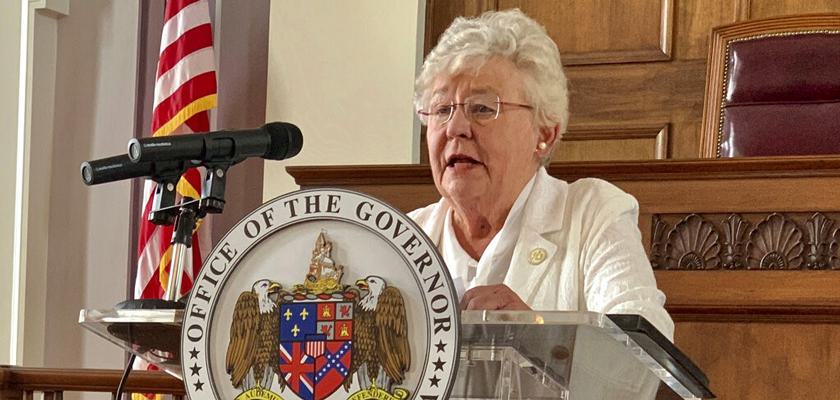In her newest round in a series of executive orders, Gov. Kay Ivey seeks to provide the public with easier access to state agencies' public records.
Ivey has been on a tear recently, signing nearly a dozen executive orders after her January 16 inauguration.
Executive Order (EO) 734, called "Promoting Transparency in State Government Through Enhanced Accessibility to Public Records," establishes a series of protocols for accessing public records across state agencies.
Currently, accessing certain public records is an uphill task. Agencies are not compelled to respond promptly to inquiries, and there is no time requirement for information to be compiled. Often, state agencies do not have a designated person for records requests, which can make the process longer. Additionally, there is often a per-page fee, which can quickly compound.
EO 734 requires all executive branch agencies to establish a public records page on their website that includes a public records request form and a contact for assistance with public records requests.
"From day one, a top priority of mine was to restore our people's faith in their state government," Ivey said. "Today, I am still every bit as committed to leading a state government that Alabamians can be proud of – one that is open, honest and transparent. Access to public records is essential to guaranteeing transparency in government, and I am proud to sign this executive order that improves this process as a whole."
EO 734 also implements different time constraints based on the type of public records request made.
Standard requests will involve documents that the agency determines would take less than eight hours of staff time to process, and requesters should expect a substantive response within 15 business days.
A time-intensive request is one the agency determines would require more than eight hours of staff time to process for sundry reasons. Agencies will give the requester an option to clarify and narrow the request. A substantive response fulfilling or denying the request can be expected within 45 business days.
EO 734 also removes all fees for documents provided electronically and creates a uniform fee schedule for all other records requests.
Agencies may charge the requester up to $20 per hour, including a $20 minimum fee for time spent locating, retrieving and preparing records for production. The time needed to redact legally protected information cannot be charged to the requester.
Fees of up to $.50 can be charged for copies produced on standard paper. Other costs can accrue if agencies deem it necessary to procure a flash drive or other hardware for electric records.
To connect with the author of this story, or to comment, email craig.monger@1819news.com.
Don't miss out! Subscribe to our newsletter and get our top stories every weekday morning










